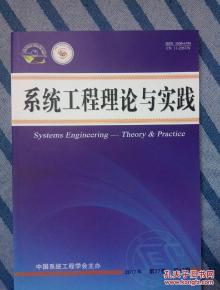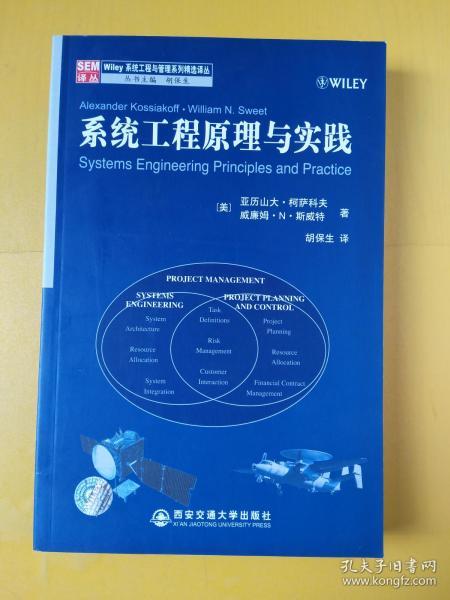
系统工程理论与实践英文版,Introduction
时间:2024-10-01 来源:网络 人气:
Introduction

Tags: SystemEngineering PracticalApplication TheoreticalFoundation

The field of systems engineering has evolved significantly over the years, bridging the gap between theoretical concepts and practical applications. This article aims to explore the core principles of systems engineering and their application in real-world scenarios. By understanding the theoretical foundation and practical implications, we can appreciate the importance of systems engineering in various industries.
Core Principles of Systems Engineering

Tags: SystemsThinking Integration Optimization

At the heart of systems engineering lies the concept of systems thinking. This approach involves understanding the relationships and interactions between various components within a system. By analyzing these relationships, engineers can identify potential issues and develop effective solutions. The following are some of the core principles of systems engineering:
1. Holistic Perspective: Systems engineering emphasizes the importance of considering the entire system rather than focusing on individual components. This holistic perspective ensures that all aspects of the system are taken into account during the design and development process.

2. Integration: Systems engineering involves integrating various components, processes, and technologies to create a cohesive and functional system. This integration ensures that all elements work together seamlessly to achieve the desired outcome.

3. Optimization: The goal of systems engineering is to optimize the performance of the system. This involves identifying and addressing inefficiencies, improving the system's reliability, and enhancing its overall effectiveness.

Practical Applications of Systems Engineering

Tags: IndustryApplications CaseStudies

Systems engineering has found applications in various industries, including aerospace, automotive, healthcare, and information technology. Here are some examples of practical applications:
1. Aerospace Industry: Systems engineering plays a crucial role in the design and development of aircraft, spacecraft, and satellite systems. By applying systems thinking, engineers can ensure that all components work together harmoniously to achieve the desired performance.

2. Automotive Industry: The automotive industry relies on systems engineering to design and manufacture vehicles that are safe, reliable, and efficient. Systems engineering helps in integrating various technologies, such as powertrains, electronics, and safety systems, to create a seamless driving experience.

3. Healthcare Industry: Systems engineering is used in healthcare to improve patient care, optimize hospital operations, and develop medical devices. By applying systems thinking, healthcare professionals can identify bottlenecks and inefficiencies in the healthcare system and develop solutions to enhance patient outcomes.

4. Information Technology: Systems engineering is essential in the development of complex IT systems, such as enterprise resource planning (ERP) software, cloud computing platforms, and cybersecurity solutions. By integrating various technologies and components, systems engineers ensure that these systems are secure, scalable, and user-friendly.

Case Study: Smart Grid Development

Tags: SmartGrid EnergySector SystemsEngineering

One notable application of systems engineering is in the development of smart grids. A smart grid is an advanced electrical grid that uses digital communication technology to monitor and manage the flow of electricity. Here's a case study illustrating the role of systems engineering in smart grid development:
- Problem Identification: The traditional electrical grid faces challenges such as inefficiencies, high energy losses, and limited integration of renewable energy sources.

- System Design: Systems engineers worked on designing a smart grid that would address these challenges. This involved integrating various technologies, such as sensors, communication systems, and renewable energy sources.

- Integration and Optimization: The systems engineers ensured that all components of the smart grid worked together seamlessly. They optimized the system's performance by identifying and addressing inefficiencies, improving energy efficiency, and enhancing the grid's reliability.

- Implementation and Monitoring: Once the smart grid was designed, systems engineers oversaw its implementation and monitoring. They continuously evaluated the system's performance and made adjustments as needed to ensure its effectiveness.

Conclusion

Tags: Summary FutureProspects

In conclusion, systems engineering is a vital discipline that combines theoretical concepts with practical applications. By understanding the core principles of systems engineering and its applications in various industries, we can appreciate the significant role it plays in improving system performance and efficiency. As technology continues to evolve, the importance of systems engineering will only grow, making it a crucial field for future advancements.
相关推荐
教程资讯
教程资讯排行













